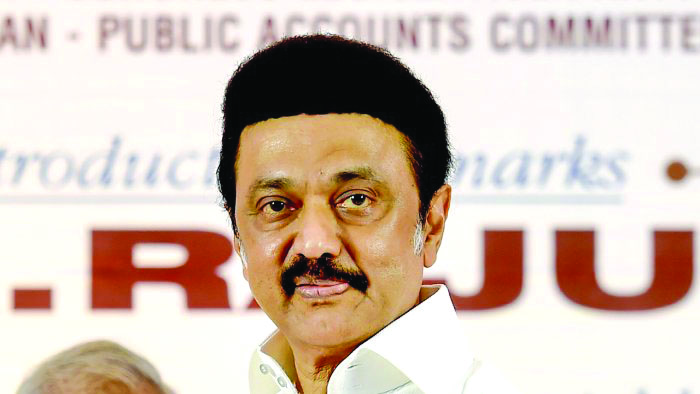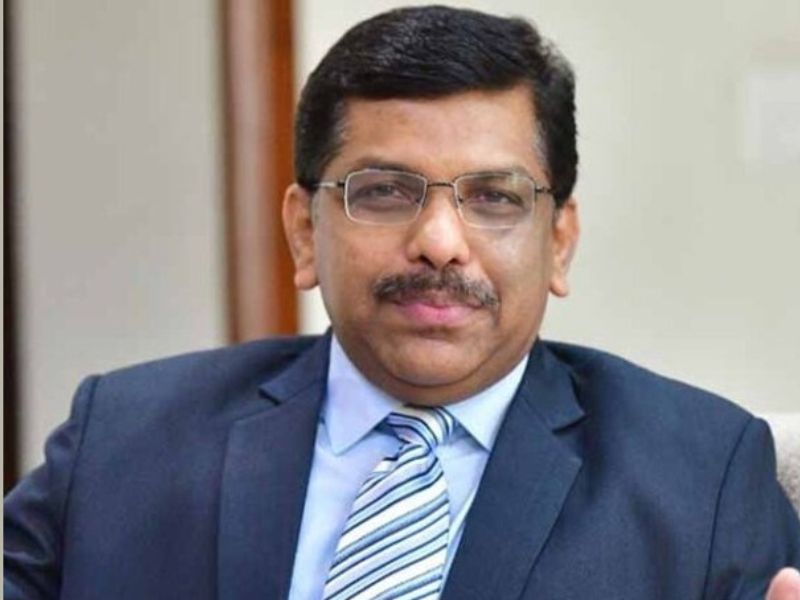Shivani Chaturvedi (Chennai)

Tamil Nadu chief minister MK Stalin
Love for one’s native language is a commendable virtue. But forcing it down the throats of everyone residing within a country or state smacks of dictatorship. Especially in a country comprising 29 linguistic states in which English or more accurately ‘Inglish’ is the language of Parliament, judiciary and business. And in a country in which every citizen has a fundamental right to reside in any state or region and practice a business, trade or profession and one in which professionals and families are frequently transferred from one state to another for short duration, it becomes harassment.
Yet so great is the love of mother-tongue for India’s politicians that decreeing Hindi — the lingua franca of North India’s half a dozen socio-economic backward but most populous states — the national language is high priority for them. Leaders of the ruling BJP at the Centre make no secret of officially or unofficially ‘imposing’ Hindi as the national language. Prime minister Narendra Modi and home minister Amit Shah traverse the country making thunderous speeches in Hindi without translators.
This has sparked a reaction in several more socio-economically advanced states of peninsular India. The newly elected Congress government of Karnataka has promised to intensify the exclusive usage of Kannada in government and administration. And on May 22, the state’s Dravida Munnetra Kazhagam (DMK) government issued an order to make Tamil as an additional compulsory subject in classes IX-X of all schools including 1,469 schools affiliated with the Delhi-based Central Board of Secondary Education (CBSE), and 124 schools affiliated with the Council for the Indian School Certificate Examinations (CISCE) from the start of the academic year 2024-25. Hitherto, schools affiliated with these national exam boards were free to choose the medium of instruction and additional second languages.
A circular from the Directorate of Private Schools states that the syllabus and exam pattern for students of these schools will be determined by the Director of Private Schools. The final written class X exam for all private school students in Tamil language will be conducted by the Director of Government Examinations, and a separate certificate will be issued to them.
The state government’s resolve to make all school children statewide study Tamil, is not something new. It stretches all the way back to the 1960s when the Congress government at the Centre decreed Hindi as the national language countrywide. Riots broke out in Tamil Nadu and gave rise to the Tamil nationalist DMK party which (together with its breakaway offshoot the AIADMK) has been elected to power ever since.
This new GO (government order) is under the Tamil Language Learning Act, 2006 which decreed learning Tamil would be compulsory for all students in classes I-X. Over a decade ago, this legislation was resisted by several education associations, academics and students and challenged in the high court which upheld it. However on appeal, the Supreme Court exempted students of schools promoted by linguistic minorities in the state and schools affiliated with the pan-India CBSE, CISCE and international exam boards whose students were permitted to choose two second languages (including Tamil).
This time round, the May 22 GO is unambiguous that Tamil should be taught as a compulsory, not additional subject in all schools in Tamil Nadu including CBSE, CISCE, Cambridge and IB schools. However, managements of national and international exam boards are set to challenge the GO as being in violation of the Supreme Court’s exemption order of 2007.
Since then, the state government had lost enthusiasm for framing rules and directing private schools to teach Tamil as a compulsory second language. However, the issue was resurrected in a June 2014 notification that all school children were obliged to write a Tamil paper in the class X public exam in 2016. Opposing thisdecree, 8,300 students moved the high court saying they had not been taught Tamil in their schools because the Act was in abeyance. Moreover, aided minority schools argued the government had failed to sanction Tamil teachers recruitment.
The state government’s stop-go, lack of enthusiasm in framing the rules under the Act has generated much confusion and resentment. In 2016, it proposed teaching Tamil in class I from academic year 2016-2017 so students could write a board exam in 2024-2025. It also said that students who were transferred and joined class IX or X and had not studied Tamil earlier, would be exempted. In 2019, this proposal was sanctified by the Madras high court.
“The only solution is for the government to issue a fresh GO stating that Tamil should be taught as a second language. It can then request other boards to conduct Tamil exams at two different levels — exam A for students who have learnt Tamil from class I, and exam B for students who have learnt Tamil from class VI onwards. The government can also provide downsized syllabus and support with appropriate textbooks for national and international boards,” says ATB Bose, general secretary of Association of Managements of Private Schools of Tamil Nadu.
The DMK government’s love of Tamil which it wants to make compulsory for all students regardless of their exam board affiliation has not only generated chaos and confusion and disrupted children’s education, but tarnished the state’s reputation as a hospitable destination for private investment. Curiously, the DMK leadership seems unaware that businessmen are likely to avoid investing in a state where language chauvinism has run wild.
























